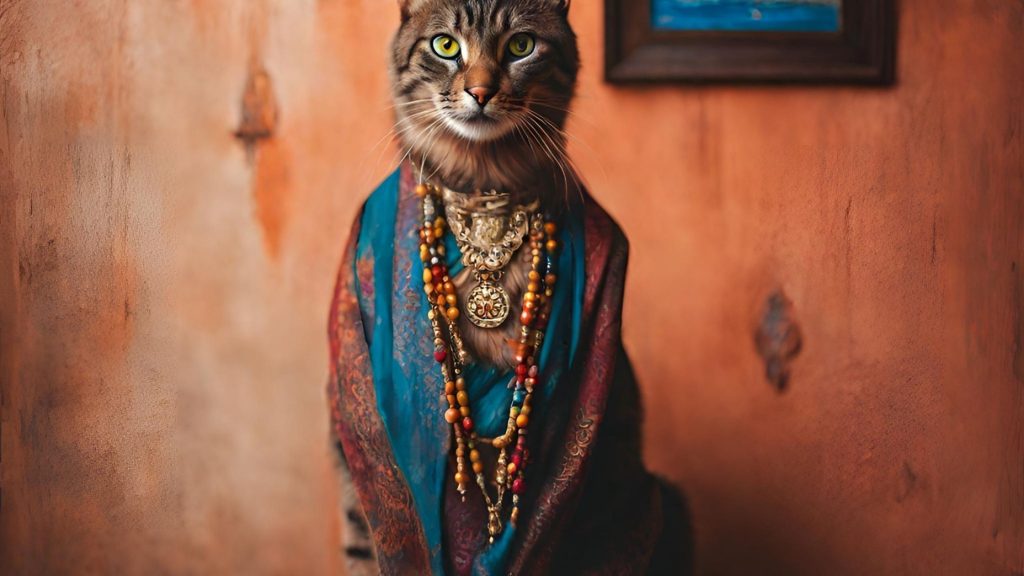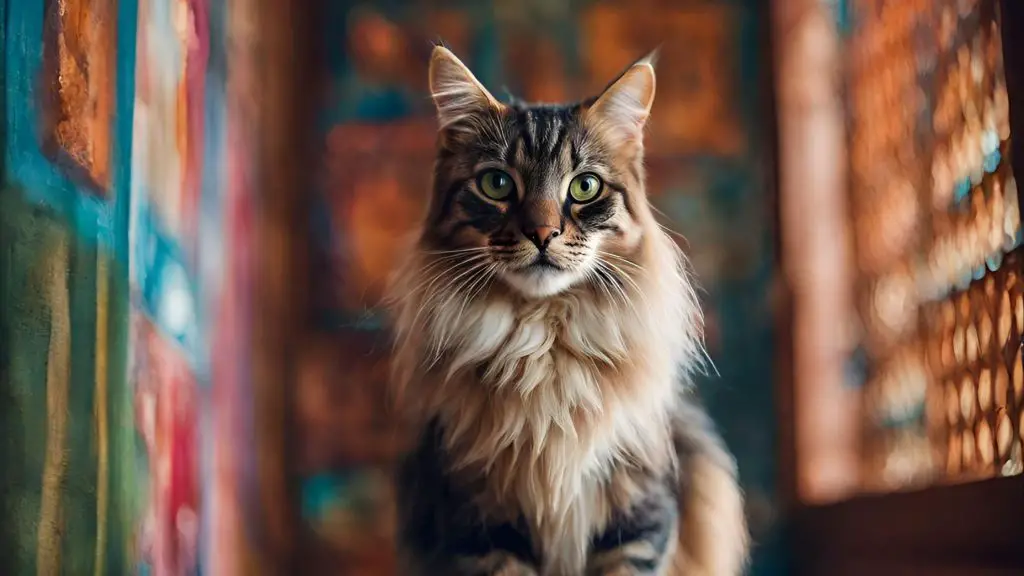For many pet owners, the question of “do cats remember their owner” brings about a profound curiosity about the nature of pet bonding with humans. It’s a heartwarming thought for cat parents to consider the strength of the emotional connection with pets. Feline enthusiasts will be enthralled to know that science backs up the heartwarming tales of feline loyalty and memory. This introduction opens the door to a fascinating journey into the minds of our whiskered companions, aiming to explore the capacity for cats to form enduring memories and emotional bonds with their humans. Join us as we unravel the mysteries of the feline heart and mind.
Exploring Feline Memory Capabilities

Intrigued by our feline companions’ behaviors, one can’t help but wonder about their mental workings, particularly their memory. Grasping the intricacies of cat memory capabilities, understanding their animal cognitive abilities, and studying feline recall provide valuable insights into the minds of these enigmatic pets. To unpack these capabilities, we must delve into the feline psychology that underpins their learning and memory retention.
Understanding Cat Cognitive Abilities
Cats possess a unique brand of intelligence that often goes unnoticed. A common domestic cat’s brain structure is 90% similar to that of a human, hinting at complex cognitive capabilities. They reveal their understanding of the world through various means such as navigational skills, social interactions, and adaptable behaviors. The ability to learn through observation and trial, often practiced in play or hunting behaviors, is a testament to their cognitive strengths and adept memory.
The Science Behind How Cats Remember
When it comes to feline memory, numerous neurological and behavioral studies have shaped our comprehension. Researchers have discovered that cats showcase both short and long-term memory processes, with capabilities to recall information based on both habit and episodic memories. Such findings are grounding-breaking in discerning how felines interact with their environment, including the recognition of their owners.
| Type of Memory | Function | Examples in Cats |
|---|---|---|
| Short-term Memory | Retains immediate information for brief periods. | Recalling the location of toys or following short commands. |
| Long-term Memory | Stores information over longer periods. | Recognizing previous owners after years of separation. |
| Episodic Memory | Remembering specific events. | Display of excitement at the sight or sound of a food container. |
| Working Memory | Active processing for problem-solving and decision-making. | Navigating a maze or solving a puzzle for treats. |
| Associative Memory | Learning through association. | Associating the jingle of car keys with their owner’s arrival. |
This overview of cat memory capabilities only scratches the surface of what felines are capable of remembering and learning. As we continue to investigate and appreciate the complex cognitive abilities of cats, we deepen not only our understanding of their behaviors but also our bond with these captivating creatures.
The Emotional Connection Between Cats and Humans

The heartwarming emotional connection with pets, particularly between cats and their owners, is more profound than what meets the eye. This bond transcends basic cohabitation; it is a symbiotic relationship that leaves imprints on both the feline’s behavior and emotional well-being. Owner recognition in cats is a real and observable phenomenon that speaks volumes about the depth of their attachment and the capacity for memory in our furry friends.
Often perceived as independent and aloof, cats exhibit behaviors that are stark indicators of a deep-seated recognition and an emotional tie to their humans. These behaviors signal more than just a response to routine; they are manifestations of an enduring recognition and emotional connection. Cat behavior towards their owners can come in various forms, from the subtle to the more overt demonstrations of affection.
- A cat’s tendency to follow their owner around the house not only suggests companionship but also an underlying trust and preference.
- Purring and kneading, which are often expressions of contentment and relaxation, tend to occur predominantly in the presence of the owner, highlighting a unique comfort level reached thanks to a well-established emotional bond.
- The facial recognition cats display—the slow blink—is considered a form of cat communication that equates to a kiss, a behavior reserved for their most trusted companions.
While the connection is undeniably affecting cat behavior, it’s essential to understand that memory plays a critical role in this intricately woven bond. As cats recognize and grow attached to their owners over time, they compile memories that contribute to this recognition. The nurturing and consistent interactions that an owner shares with their cat fortify this emotional connection, creating a two-way street of fondness and familiarity that is deeply ingrained in the cat’s psyche.Embracing the fact that cats are not just solitary creatures by nature but also capable of exhibiting deep affection and recognition towards their human companions can significantly enhance the human-pet relationship and enrich the lives of both parties.
Cat Behavior and Owner Recognition

Anyone who has forged a deep connection with their feline friend understands that cats have a unique way of showing that they remember and cherish their human companions. Within the realm of owner recognition in cats, there are distinct behaviors that signal their understanding and affection, distinguishing how they interact with their owners compared to strangers. Learning to identify these actions can serve as reassurance of the special bond shared between cats and humans—a testament to the potential for significant pet bonding with humans.
Signs That Your Cat Recognizes You
When it comes to decoding cat behavior, several key indicators suggest owner recognition. Cats exhibit a series of affectionate and trusting behaviors that signal they not only recognize you but also feel secure and attached to you. These signs of recognition can be both subtle and overt, but they carry a profound message of connection and familiarity.
- Purring: This classic sign of cat contentment is often directed towards favored individuals, indicating a sense of safety and affection.
- Kneading: When your cat uses its paws to ‘make biscuits’ on you, it’s reenacting a comfort behavior from kittenhood, underscoring a deep-seated sense of trust.
- Following: A cat that shadows your movements through the house does so because it enjoys your company and is interested in your activities.
- Greeting Rituals: Whether through head-butting, cheek rubbing, or meowing, these greetings are reserved for those they recognize and cherish.
Differences in Behavior With Strangers Versus Owners
Cats display markedly different behavior when interacting with strangers compared to their owners. This contrast in interaction can serve as further evidence of their recognition abilities and the particular esteem they hold for their humans.
| Behavior | With Owner | With Stranger |
|---|---|---|
| Approachability | More likely to approach, rub against, and stay close | May exhibit caution, hide, or remain indifferent |
| Eye Contact | Comfortable with holding gaze, may slow blink | Less likely to maintain eye contact, may look away |
| Response to Name | Often responds or perks up when called | May not react or may be slower to respond |
| Physical Contact | Seeks out touch, may initiate contact | Usually hesitant or reserved, may reject physical interaction |
| Playing Behavior | Engages readily, appears relaxed and playful | May play less or not at all, seems more watchful and assessing |
Through understanding cat behavior and the nuances of how they interact differently with their owners versus strangers, it becomes clear that owner recognition in cats plays a vital role in their social behaviors and their ability to form lasting, emotional connections with humans.
How Long-term Memory Functions in Cats

The enigma of long-term memory in cats poses fascinating queries about their memory capabilities and overall cat behavior. Delving into the cognitive labyrinth of felines, recent scientific observations suggest that cats have a remarkable capacity for remembering significant experiences over prolonged periods. The durability of a cat’s memory often hinges on the intensity and regularity of events. A cat’s interaction with its owner, for example, can solidify recollection, securing a place in the animal’s long-term memory.
To better understand these cognitive phenomena, let’s consider the types of experiences cats are likely to retain. Frequent and emotionally charged interactions, such as daily feedings, affectionate exchanges, and playful activities, are typically deposited into a cat’s enduring memory bank. These repetitive and impactful experiences not just contribute to the cat’s emotional development but also fortify the bond between the pet and its owner.
| Experience | Impact on Long-Term Memory | Observations |
|---|---|---|
| Positive Daily Interactions | Strengthens emotional bonds, reinforcing memory | Cats often exhibit signs of recognition and affection towards their owners over time |
| Negative Occurrences | Can become ingrained, potentially impacting trust | Felines display caution or distress when faced with a previously negative stimulus |
| Novel and Stimulating Events | Encourages neural plasticity and memory retention | Interest and engagement levels are heightened in cats encountering new stimuli |
Cats’ memories do not function as a simple repository of discrete events but as an intricate web of interrelated occurrences. These sensory and emotional experiences are stored in such a way that certain triggers can reactivate related memories, demonstrating the profound depth of cat memory capabilities. Whether it’s the familiar scent of an owner after a prolonged absence or the sound of that specific cupboard door where the treats are stored, these triggers can elicit vivid recollections for our feline companions. Thus, reinforcing the compelling idea that the bond between a cat and its human can become an enduring element of the cat’s cognitive and emotional landscape.
Animal Cognitive Abilities: How Smart Are Cats?
Cats have long captivated us with their elegant movements and unpredictable behavior, but beneath their mysterious exterior lies a brain capable of complex cognitive processes. The study of animal cognitive abilities has gradually peeled back the layers on feline intelligence, revealing insights into how cats perceive and interact with the world around them. As we dive deeper, we compare cats’ cognitive skills to those of other animals and look at the specific tests that shed light on their mental prowess.
Comparing Cat Intelligence to Other Animals
When considering feline recall and cat memory capabilities, it’s clear that cats hold their own in the animal kingdom. Yet, how do they measure up against other species? Researchers have used a variety of metrics to compare animal intelligence, including problem-solving abilities, social learning, and flexibility in behavior. Cats, being both predators and solitary by nature, show a different kind of smartness—one that emphasizes stealth, agility, and independence.
| Animal | Cognitive Trait | Observation in Cats | Relevance to Feline Recall |
|---|---|---|---|
| Dolphins | Social learning | Less prevalent due to solitary habits | May engage in mimicry with humans |
| Chimpanzees | Use of tools | Rarely use tools | Shows adaptability in environment manipulation |
| Dogs | Obedience training | Able to follow commands | Evidence of understanding and memory retention |
| Elephants | Long-term memory | Recall past experiences, especially in spatial navigation | Strength of feline long-term memory |
Cognitive Tests and Feline Intelligence Indicators
To gauge the intelligence of cats and comprehend their cat memory capabilities, scientists have devised various cognitive tests. These investigations not only examine memory recall but also look at a cat’s abilities to solve puzzles, navigate mazes, and react to hidden stimuli. Such tests reveal an intriguing level of problem-solving prowess, indicative of high intelligence in feline subjects. Notably, cats have demonstrated exceptional learning ability when it comes to maneuvering through complex environments—a testament to their mental flexibility and spatial awareness.
- Food puzzle toys assess a cat’s problem-solving skills by challenging them to obtain a treat.
- Mirror tests explore self-awareness and the ability to recognize oneself.
- Maze tests highlight navigational skills and the recall of efficient paths.
- Conditioning experiments, such as operant conditioning, evaluate learning speed and behavioral flexibility.
These cognitive assessments contribute to a broader understanding of how cat intelligence operates uniquely compared to other animals. While their solitary nature may not necessitate social learning on the same level as pack animals, their adept memory aids in hunting and territorial navigation, playing a crucial role in their survival. As we continue to study their cognitive abilities, the enigmatic feline mind remains a captivating subject for both pet lovers and scientists alike.
Do Cats Remember Their Owner

When pondering the question, do cats remember their owner, it’s crucial to acknowledge the complex nature of long-term memory in cats. These enigmatic creatures are often underestimated in their capacity for recollection, yet time and again, they demonstrate a significant emotional connection with pets. Let us revisit and consolidate the compelling evidence that supports the notion of feline memory and how it affirms that our whiskered companions do indeed hold a special place for us in their hearts and minds.
Memory in cats is not a mere storage of experiences; it’s a tapestry woven with the threads of sensory cues, emotional resonance, and environmental context. As such, cats exhibit clear signs of recognition when it comes to their human families. This familiarity isn’t just about feeding routines or the comfort of a warm lap, but also the nuanced behaviors and unique interactions that shape the memories they form with us.
Here are some factors influencing a cat’s ability to remember their owner:
- Consistency of interaction
- The emotional intensity of experiences
- Unique scents and sounds associated with the owner
- Routines that reinforce recognition patterns
From the gentle nudge of a cat’s nose to their distinct purring at your presence, these behaviors are not random; they’re potent indicators of a cat’s long-term memory. Moreover, behavioral studies cement the concept that cats not only remember those who care for them but also form emotional attachments that influence these memories, allowing them to last over considerable spans of time.
“Cats are often seen as solitary animals, yet they have the capability to remember and cherish their human companions, bridging the gap between independence and affection.”
Ultimately, as owners, we play an irreplaceable role in the lives of our pets. Whether it’s through daily play, regular cuddling sessions, or simply being present, we’re leaving imprints in their memories. So, whenever you step through the door after a long day and are greeted by a furry friend who’s all too happy to see you, remember, it’s a testimony to the lasting impression you’ve made – a perfect blend of emotional connection with pets and the enduring impact of nurturing a shared life.
Bonding With Your Pet: Factors That Influence Memory
The intimate journey of pet bonding with humans carves a pathway to a shared history, rich in emotions and routines. As pet owners, we intuitively know the importance of an emotional connection with pets, often marveling at the feline recall of our shared moments. But what solidifies this memory in the minds of our beloved cats?
The Role of Routine in Pet Bonding
Rituals and repetition are not just the scaffolding for human habits; they also play a pivotal role in fortifying the bonds we share with our feline friends. The secret to enhancing a cat’s memory and recognition can often be found in the comfort and predictability of a well-established routine. From feeding times to playful interactions, routine helps cast a nonverbal reassurance that strengthens trust and memory.
- Consistent Feeding Schedule: Supports security and anticipation.
- Daily Play Sessions: Encourages engagement and positive associations.
- Grooming Rituals: Builds comfort and emotional closeness.
- Regular Vet Visits: Establishes care patterns and long-term health monitoring.
Impact of Emotional Bonding on Memory
While the dependable structures of daily routines lay the groundwork for pet bonding, it is the emotional resonance that turns interactions into lasting memories. When cats encounter warmth, kindness, and the protective aura exuded by their human companions, it translates into an enhanced capacity for feline recall and cements their owner’s place in their affectionate remembrance.
| Emotional Bonding Element | Benefit to Memory |
|---|---|
| Affectionate Touch | Strengthens relational memories through positive reinforcement. |
| Verbal Communication | Improves name and voice recognition. |
| Shared Experiences | Increases contextual recall and familiarity. |
| Emotional Support in Stressful Times | Enhances loyalty and trust-based memories. |
Whether it’s through the safety net of routines or the profound depth of emotional bonding, the ways we interact with our pets inevitably leave an impression on their hearts and minds. Understanding these mechanisms not only enriches the lives of our feline companions but also elevates the quality of the bonds we share with them.
Memory Decline: Do Older Cats Remember as Well?
As cats age, they may experience alterations in cat behavior and changes in their long-term memory and cognitive functions. Understanding these age-related changes in memory not only helps us to empathize with our feline friends but also guides us in supporting their well-being during their senior years.
Age-Related Changes in Cat Memory
Research has indicated that just like humans, cats may display signs of cognitive decline as they grow older. This can affect their memory, responsiveness, and learning ability. Age-related changes in memory might result in cats becoming less adept at navigating their environment or recognizing familiar faces. These changes, however, do not erase the affection and bonds they have formed with their human companions over the years.
How To Help An Aging Cat Maintain Memory
To assist an aging cat in preserving its cognitive health, cat owners can utilize a variety of strategies that promote mental stimulation and maintain their pet’s quality of life. Here are some beneficial approaches:
- Creating a secure and consistent environment to reduce stress and confusion.
- Engaging in regular play sessions that challenge them mentally.
- Teaching new, simple tricks or refreshing old ones to stimulate their brain.
- Ensuring a nutrient-rich diet that may include supplements specifically tailored for senior cats.
- Regular veterinary check-ups to monitor their overall health and cognitive status.
While there’s no guaranteed way to prevent memory decline in cats, these practices can contribute to your cat’s overall cognitive resilience.
| Strategy | Benefits | Recommendations |
|---|---|---|
| Mental Stimulation | Improves and maintains cognitive functions | Teach new tricks, provide puzzle feeders |
| Dietary Considerations | Supports brain health | Incorporate antioxidants, Omega-3 fatty acids |
| Regular Exercise | Enhances circulation and overall well-being | Encourage playtime with interactive toys |
| Consistent Routine | Reduces anxiety and confusion | Keep feeding and play schedules regular |
| Veterinary Care | Early identification of health issues | Schedule routine check-ups and screenings |
Improving Your Connection: Tips for Reinforcing Memory
Enhancing the pet bonding with humans spans beyond offering treats or a warm lap for rest. It is a comprehensive approach that taps into consistent engagement tied to the cat’s natural behavior and intuition. To foster a robust connection that bolsters owner recognition in cats, incorporate playtime with an adherence to routine. Design interactive games that appeal to your feline’s hunting instincts, such as using laser pointers or feather wands. This not only stimulates their mind but also creates positive associations with your presence.
Training is another avenue to reinforce your bond and improve memory. While cats might not be as readily trainable as dogs, they can learn a variety of commands and tricks. Use clicker training or reward-based techniques to guide them. The process of learning and repetition can significantly aid in memory retention, making your pet more attuned to you and your shared experiences.
Show consistent affection to strengthen the emotional ties between you and your cat. Regular petting, grooming, and speaking to your cat in a soothing voice can reinforce their recognition of you as a trusted companion. Habits that promote a nurturing environment will encourage your pet to not only remember you but to also feel securely attached, ensuring a lasting and loving bond.
FAQ
Q: Do cats remember their owners?
A: Yes, cats can and do remember their owners. Thanks to their long-term memory and emotional connections, cats often exhibit behaviors that indicate recognition and bonding with their human companions.
Q: What are the capabilities of a cat’s memory?
A: Cats have both short-term and long-term memory capabilities, which allow them to recall information about their environment and social interactions. Their memory is facilitated by their cognitive abilities, helping them learn from experiences and retain important social cues, such as recognizing their owners.
Q: How do cats show an emotional connection to their owners?
A: Cats demonstrate emotional connections with their owners through behaviors like purring, cuddling, following their owners around, and showing preference for their company over strangers.
Q: How can you tell if a cat recognizes you?
A: Signs that your cat recognizes you include greeting you with a tail held high, kneading, vocalizations like meowing, seeking you out for attention, and displaying relaxed body language in your presence.
Q: Do cats behave differently with their owners compared to strangers?
A: Yes, cats often show a distinct difference in behavior with their owners, expressing more familiarity, affection, and comfort than they do with strangers. This can become evident through increased interaction, playfulness, and a general willingness to be in close proximity to the owner.
Q: How does long-term memory function in cats?
A: Long-term memory in cats allows them to remember their owners and other significant experiences for years. This type of memory is built through repeated interactions and emotional relevance, enabling cats to form enduring associations.
Q: How intelligent are cats compared to other animals?
A: Cats are quite intelligent and their cognitive abilities compare favorably with many other animals. They possess problem-solving skills, the ability to learn through observation, and have a memory system that supports complex social structures and survival strategies.
Q: What factors can influence a cat’s ability to remember their owner?
A: Factors influencing a cat’s memory of their owner include the frequency and quality of interaction, the emotional bond they share, routines, and environmental stability, which can all contribute to a stronger and more persistent memory.
Q: Do older cats experience memory decline?
A: As with humans, aging can affect a cat’s cognitive functions, potentially leading to memory decline. While it’s not a given for all cats, age-related changes can impact how well they remember past events and people.
Q: How can you help an aging cat maintain its memory?
A: Helping an aging cat maintain its memory can involve providing mental stimulation through interactive play and problem-solving activities, keeping them physically active, ensuring a nutrient-rich diet, and maintaining regular check-ups with a veterinarian.
Q: What are some tips for improving your connection with your cat and reinforcing their memory?
A: To reinforce your cat’s memory and strengthen your connection, engage in regular, positive interactions such as playing, training, and providing consistent affection. Creating a stable and enriching environment, along with establishing routines, will help improve your bond and your cat’s recollection of you.








